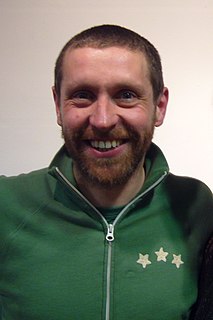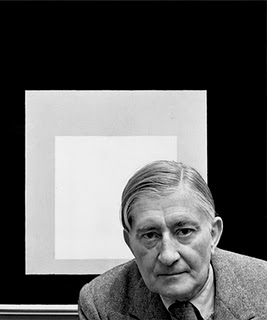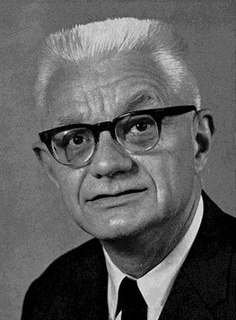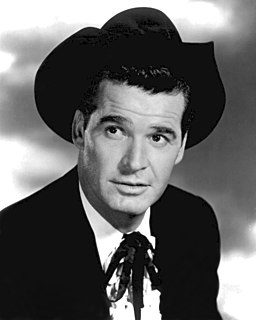Top 216 Factual Quotes & Sayings - Page 4
Explore popular Factual quotes.
Last updated on December 19, 2024.
The ascendancy over men's minds of the ruins of the stupendous past, the past of history, legend and myth, at once factual and fantastic, stretching back and back into ages that can but be surmised, is half-mystical in basis. The intoxication, at once so heady and so devout, is not the romantic melancholy engendered by broken towers and mouldered stones; it is the soaring of the imagination into the high empyrean where huge episodes are tangled with myths and dreams; it is the stunning impact of world history on its amazed heirs.
To rest the case for equal treatment of national or racial minorities on the assumption that they do not differ from other men is implicitly to admit that factual inequality would justify unequal treatment, and the proof that some differences do, in fact, exist would not be long in forthcoming. It is of the essence of the demand for equality before the law that people should be treated alike in spite of the fact that they are different.
In fact, nothing in science as a whole has been more firmly established by interwoven factual information, or more illuminating than the universal occurrence of biological evolution. Further, few natural processes have been more convincingly explained than evolution by the theory of natural selection, or as it has been popularly called, Darwinism.
The best-informed man is not necessarily the wisest. Indeed there is a danger that precisely in the multiplicity of his knowledge he will lose sight of what is essential. But on the other hand, knowledge of an apparently trivial detail quite often makes it possible to see into the depth of things. And so the wise man will seek to acquire the best possible knowledge about events, but always without becoming dependent upon this knowledge. To recognize the significant in the factual is wisdom.
A lot of religious belief - even the majority - involves making factual claims about the world which do come into conflict with science and history. For Christians, a test of this is the Empty Tomb. I ask Christians: 'are you saying that it does not matter - as a matter of fact - whether or not Christ's tomb was empty and that he was resurrected?' At that point, I find that, to a lot of them, it really does matter, despite all the fine talk about not wanting to confuse science and history with religion.
In my case, I made the decision early on that I was going to be very open about the book and claim upfront that each of the stories was based on my life experience. I think my reasoning goes back to what I was saying earlier, about wanting the book to be "more than a book," that I wanted the reader to feel a little unsettled about what they were reading: there's a core of factual truth here.
... But all the feelings that evoke in us the joy or the misfortune of a real person are only produced in us through the intermediary of an image of that joy or that misfortune; the ingeniousness of the first novelist was in understanding that, in the apparatus of our emotions, since the image is the only essential element, the simplification which consists of purely and simply suppressing the factual characters is a definitive improvement.
To make our position clearer, we may formulate it in another way. Let us call a proposition which records an actual or possible observation an experiential proposition. Then we may say that it is the mark of a genuine factual proposition, not that it should be equivalent to an experiential proposition, or any finite number of experiential propositions, but simply that some experiential propositions can be deduced from it in conjunction with certain other premises without being deducible from those other premises alone.
In other words, the propositions of philosophy are not factual, but linguistic in character - that is, they do not describe the behaviour of physical, or even mental, objects; they express definitions, or the formal consequences of definitions. Accordingly we may say that philosophy is a department of logic. For we will see that the characteristic mark of a purely logical enquiry, is that it is concerned with the formal consequences of our definitions and not with questions of empirical fact.
I am a nonbeliever myself. But I think there's so much about religion that is not factual in nature as to why people engage with it and what it means to them. You can debunk why you think there's no physical evidence for God and why the story of Jesus didn't really happen that way and stuff like that all the live-long day, and it's not going to make a difference to what role religion has in people's lives and how they feel about it and how it makes their lives better or worse.
A popular feel for scientific endeavors should, if possible, be restored given the needs of the twenty-first century. This does not mean that every literature major should take a watered-down physics course or that a corporate lawyer should stay abreast of quantum mechanics. Rather, it means that an appreciation for the methods of science is a useful asset for a responsible citizenry. What science teaches us, very significantly, is the correlation between factual evidence and general theories, something well illustrated in Einstein's life.
I don't know how to write a novel in the world of cellphones. I don't know how to write a novel in the world of Google, in which all factual information is available to all characters. So I have to stand on my head to contrive a plot in which the characters lose their cellphone and are separated from technology.
I am somewhat uncertain whether there is a definite factual question as to whether natural language handles truth-value gaps. Nor am I even quite sure that there is a definite question of fact as to whether natural language should be evaluated by the minimal fixed point or another, given the choice of a scheme for handling gaps. We are not at the moment searching for the correct scheme.
We know that the gifts which men have do not come from the schools. If a man is a plain, literal, factual man, you can make a great deal more of him in his own line by education than without education, just as you can make a great deal more of a potato if you cultivate it than if you do not; but no cultivation in this world will ever make an apple out of a potato.
They may already know too much about their mother and father--nothing being more factual than divorce, where so much has to be explained and worked through intelligently (though they have tried to stay equable). I've noticed this is often the time when children begin calling their parents by their first names, becoming little ironists after their parents' faults. What could be lonelier for a parent than to be criticized by his child on a first-name basis?
Art is revelation instead of information, expression instead of description, creation instead of imitation or repetition. Art is concerned with the HOW, not the WHAT; not with literal content, but with the performance of the factual content. The performance - how it is done - that is the content of art.
The propositions of mathematics have, therefore, the same unquestionable certainty which is typical of such propositions as "All bachelors are unmarried," but they also share the complete lack of empirical content which is associated with that certainty: The propositions of mathematics are devoid of all factual content; they convey no information whatever on any empirical subject matter.
There are times when personal experience keeps us from reaching the mountain top and so we let it go because the weight of it is too heavy. And sometimes the mountain top is difficult to reach with all our resources, factual and confessional, so we are just there, collectively grasping, feeling the limitations of knowledge, longing together, yearning for a way to reach that highest point. Even this yearning is a way to know.
I don't want to know what's good, or bad, or true. I let God worry about the truth. I just want to know the momentary fact about things. Life isn't good, or bad, or true. It's merely factual, it's sensual, it's alive. My idea of living sensual facts are you, a home, a country, a world, a universe, in that order.
So tell me, since it makes no factual difference to you and you can't prove the question either way, which story do you prefer? Which is the better story, the story with animals or the story without animals?' Mr. Okamoto: 'That's an interesting question?' Mr. Chiba: 'The story with animals.' Mr. Okamoto: 'Yes. The story with animals is the better story.' Pi Patel: 'Thank you. And so it goes with God.
People leave because of their own overts and withholds. That is the factual fact and the hard-bound rule. A man with a clean heart can’t be hurt. The man or woman who must must must become a victim and depart is departing because of his or her own overts and withholds. It doesn’t matter whether the person is departing from a town or a job or a session. The cause is the same.
The songs are not meant to be real life. They're meant to have a psychic - rather than a factual - bearing on the listener. It's rare that a song grounded in reality moves me because I don't feel like I'm getting the whole story. Songs are made to exist in and of themselves, like a great James Jones or Robert Louis Stevenson novel - they're not autobiographical, and yet there's a reality in every single page. It's real life of the imagination.
Breaking new factual ground is not what Zeitgeist is about, however. Rather, the video is a powerful and fast-acting dose of agitprop, hawking its conclusions as givens. Unfortunately, like most propaganda, it doesn’t play fair with its intended audience. At times, while watching it, I felt like I was getting Malcolm McDowell’s treatment in Clockwork Orange: eyes pried wide open while getting bombarded with quick-cut atrocity photos.
Most impediments to scientific understanding are conceptual locks, not factual lacks. Most difficult to dislodge are those biases that escape our scrutiny because they seem so obviously, even ineluctably, just. We know ourselves best and tend to view other creatures as mirrors of our own constitution and social arrangements. ( Aristotle , and nearly two millennia of successors, designated the large bee that leads the swarm as a king.
When I read the script [of Good Kill], it read like a science fiction film. And Andrew [writer/director Andrew Niccol] is known for sci-fi. But when I spoke to him, he said this picture was 100% factual, which blew my mind. I realized then how little I knew about the drone program. And I felt that, if I knew so little about it, there must be others who should be educated about what's going on.
I have to remind myself - I think the population of the United States has been subjected to the most sophisticated form of propaganda and mind control that any group of people has been exposed to in a very, very long time. It's difficult for people in this country to get any kind of factual information and to make intelligent decisions based on them.
In the United States of America, unfortunately we still live in a bubble of unreality. And the Category 5 denial is an enormous obstacle to any discussion of solutions. Nobody is interested in solutions if they don’t think there’s a problem. Given that starting point, I believe it is appropriate to have an over-representation of factual presentations on how dangerous it is, as a predicate for opening up the audience to listen to what the solutions are, and how hopeful it is that we are going to solve this crisis.
The only excuse for a novelist, aside from the entertainment and vicarious living his books give the people who read them, is as a sort of second-class historian of the age he lives in. The "reality" he missed by writing about imaginary people, he gains by being able to build a reality more nearly out of his own factual experience than a plain historian or biographer can.
There's one logical generational difference and that is that young women will have more chances to support a female president than older women. Older women feel it's their last chance, so that's just a factual, obvious difference. But other than that it depends on experience, on individual experience.
I am very astonished that the scientific picture of the real world around me is deficient. It gives a lot of factual information, puts all our experience in a magnificently consistent order, but it is ghastly silent about all and sundry that is really near to our heart, that really matters to us. It cannot tell us a word about red and blue, bitter and sweet, physical pain and physical delight; it knows nothing of beautiful and ugly, good or bad, God and eternity.
I believe, indeed, that overemphasis on the purely intellectual attitude, often directed solely to the practical and factual, in our education, has led directly to the impairment of ethical values. I am not thinking so much of the dangers with which technical progress has directly confronted mankind, as of the stifling of mutual human considerations by a 'matter-of-fact' habit of thought which has come to lie like a killing frost upon human relations. Without 'ethical culture' there is no salvation for humanity.
The Bible is an ancient text from an ancient context. We live thousands of miles and thousands of years away from that context, which also represents different cultures. Archaeology is a modern means of revealing both the lost record of the ancient world, and the historical and social world of the Bible. While the purpose of archaeology is not to prove the historicity of the people and events recorded in Scripture, it can help immeasurably to confirm the historical reality and accuracy of the Bible and to demonstrate that faith has a factual foundation.
Only recently serious research into the relationship between photography and art has taken place. Why has it been so long in coming ? In some respects historical research is analogous with that of science. The bringing to light of factual material and the development of ideas is to a large extent cumulative. But when artists themselves were, from about 1910, beginning to tear down the bastions protecting Art in its ivory tower, questioning the idea of Art with a capital 'A', photography was inevitably to assume a new stature both in the eyes of artists and the public, too.
For fantasy is true, of course. It isn't factual, but it is true. Children know that. Adults know it too, and that is precisely why many of them are afraid of fantasy. They know that its truth challenges, even threatens, all that is false, all that is phony, unnecessary, and trivial in the life they have let themselves be forced into living. They are afraid of dragons, because they are afraid of freedom.
By day, or on a cloudless night, a pilot may drink the wine of the gods, but it has an earthly taste; he's a god of the earth, like one of the Grecian deities who lives on worldly mountains and descended for intercourse with men. But at night, over a stratus layer, all sense of the planet may disappear. You know that down below, beneath that heavenly blanket is the earth, factual and hard. But it's an intellectual knowledge; it's a knowledge tucked away in the mind; not a feeling that penetrates the body.


































